-3 D Dennis.jpg)
Amphiuma means
Photo by D Dennis
Description: The two-toed amphiuma is uniformly colored, ranging from brown or dark gray to almost black. Adults are larger than most salamander species and are cylindrical in shape. The eyes and limbs of an amphiuma are very small, and, just as its name indicates, each leg has two toes. Amphiuma do not have external gills but instead have a single pair of gill slits. Larval amphiuma resemble adults in shape and color, being black with a light gray belly. Although they have white gills when they hatch, larval amphiuma quickly lose them. One may confuse the two-toed amphiuma with greater or lesser sirens. Sirens, however, have external gills and only one pair of limbs while the two-toed amphiuma has two pairs of legs.
Habitat/Range: Two-toed amphiuma can be found in the coastal plain of Virginia, down south into Florida, and as far west as Louisiana. Adults and juveniles can be found in hardwood and cypress swamps, temporary bodies of water, canals, and streams. Typically, two-toed amphiuma prefer bodies of water with debris and detritus but they may also be found in clear streams.
Diet: Juvenile two-toed amphiuma consume small invertebrates while adults are known to eat crayfish, worms, insects, amphibians, small reptiles, and snails.
Reproduction: Courtship and mating behavior of two-toed amphiuma are unknown. During the winter and spring, female amphiuma will lay between 20 and 200 eggs, usually beneath debris, and will often remain coiled around her eggs during incubation. Eggs hatch 5-6 months later.
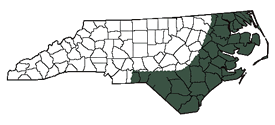
The shaded region represents the range of the two-toed amphiuma in North Carolina.
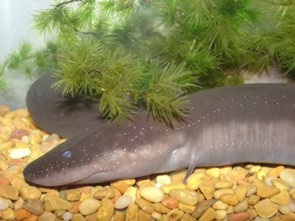
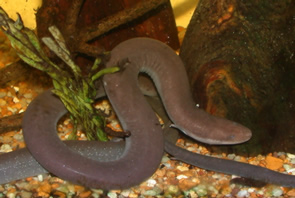
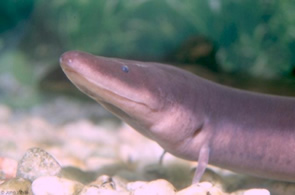
Photo by JD Willson
Photo by John White
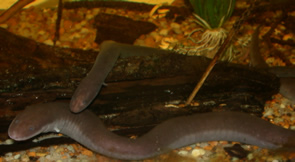
Photo by JD Willson
